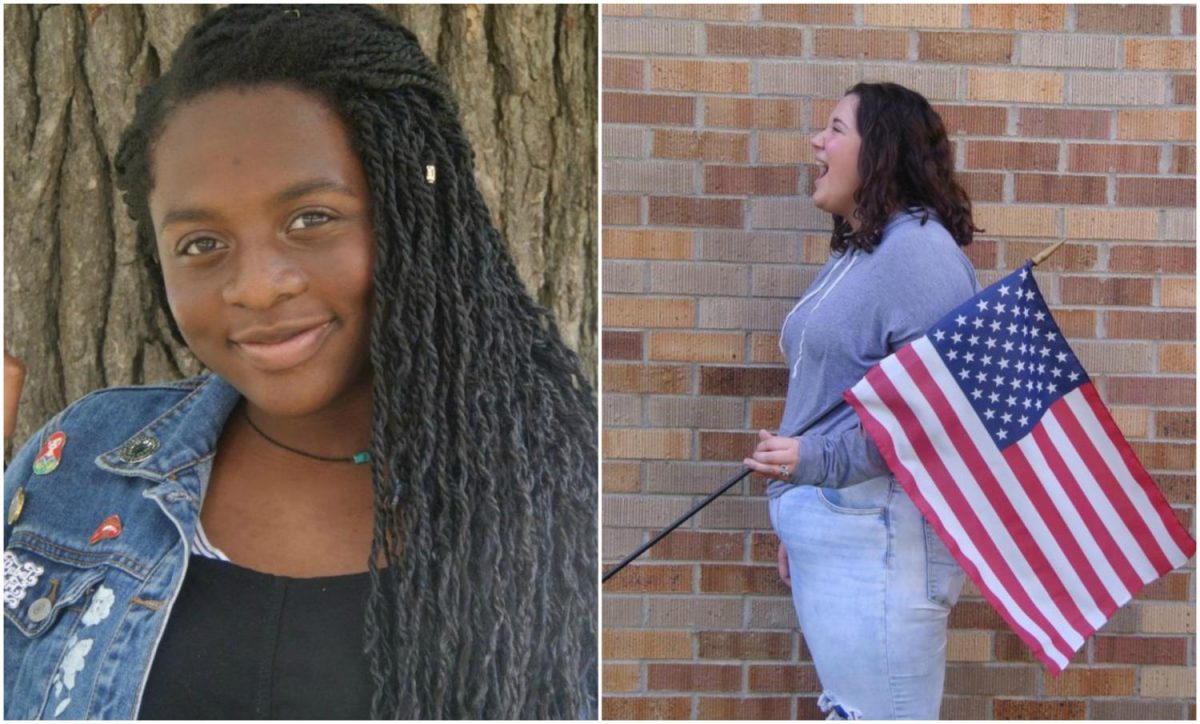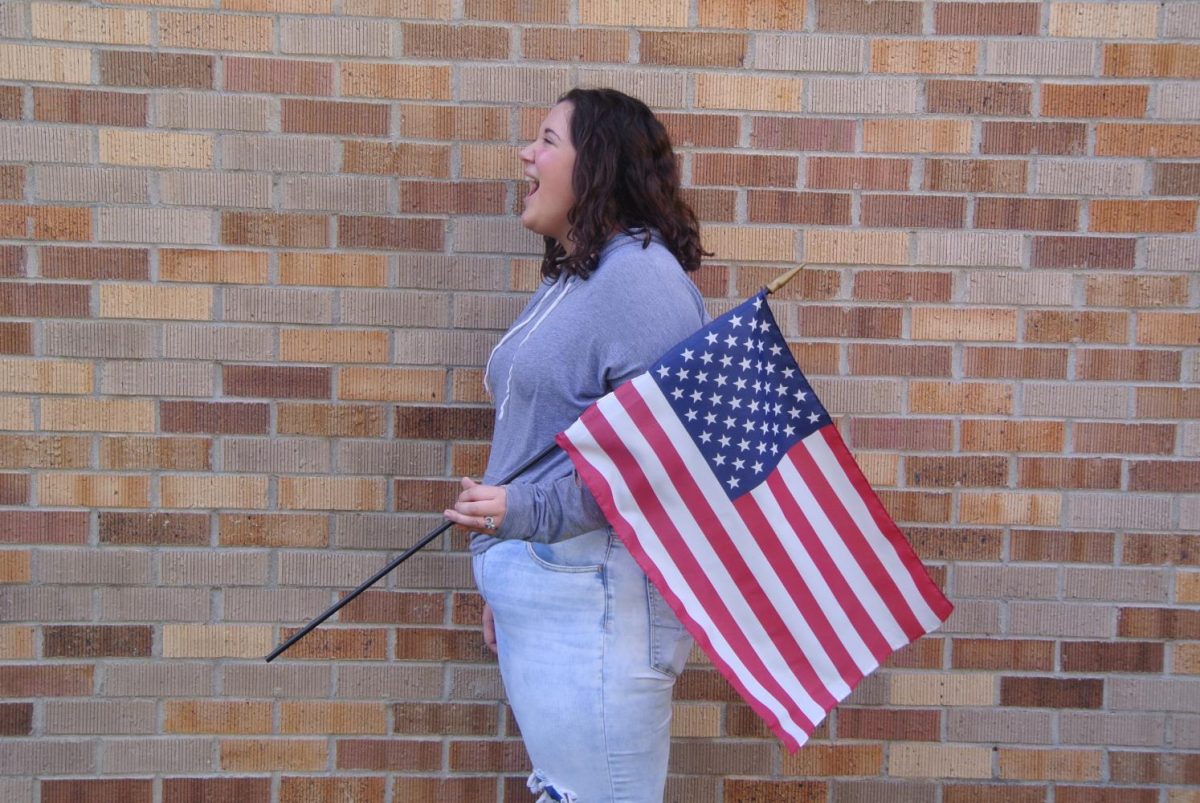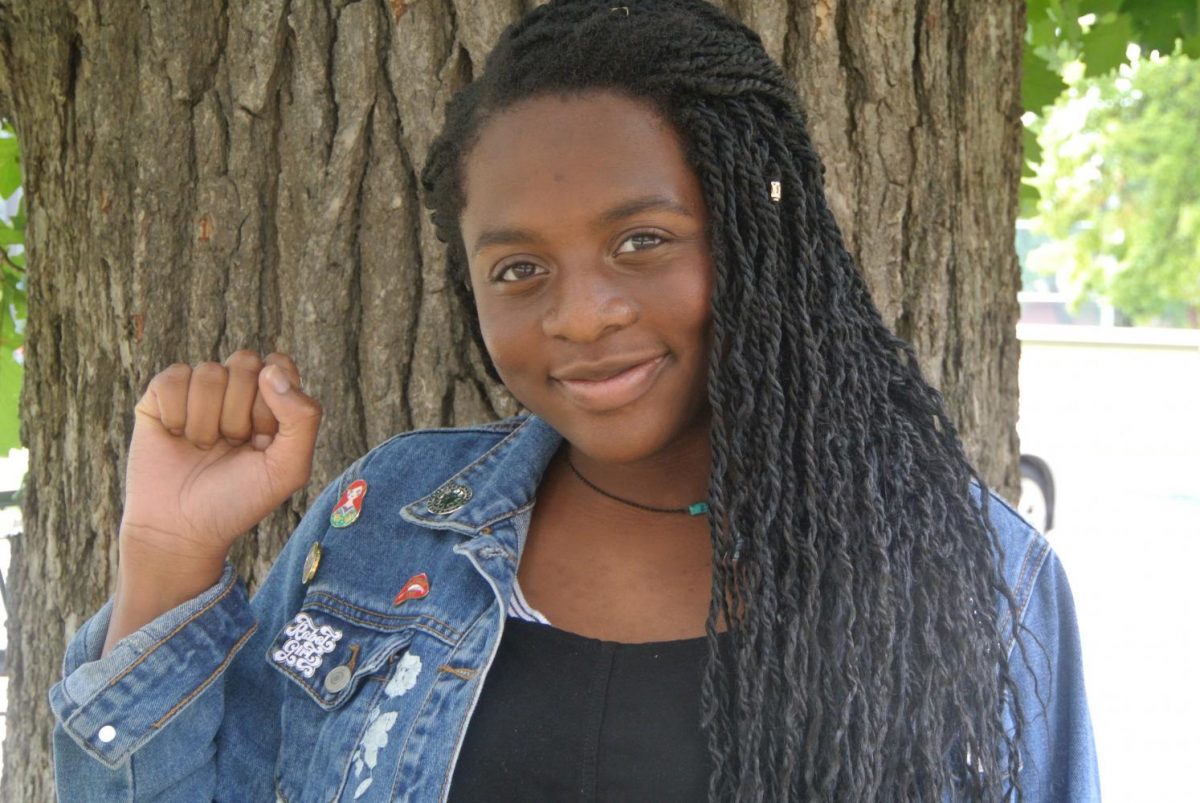Face off: Free Speech vs. Hate Speech
September 26, 2017
In light of the recent act of terrorism resulting in the death of a counter-protester in Charlottesville, Virginia, which initially began as a protest led by a group of white supremacists and Neo-Nazis, we were inspired to write face-off columns about the freedom of speech vs. the freedom of hate. While neither of us support hate or the actions that are associated with it, we have differing opinions on what should be able to be publicly expressed.
Hate Speech is Free Speech
Hate: “[an] intense hostility and aversion usually deriving from fear, anger, or sense of injury,” according to Merriam-Webster. Here is what I absolutely hate: the wage gap, when people use the word “gay” in a negative connotation, how women are often blamed for assault based on their clothing or the time of day they went out at, and most of all, being told that I can’t share or stand up for my opinions. This is where the freedom of speech and hate collide.
It is imperative that I state I do not encourage or support violence, harassment, assault, teasing or any type of hate crime whatsoever; I truly despise everything that is associated with hate itself. It is also imperative that I state that both my job as a student journalist and this column would cease to exist without the freedom of speech and similarly, the freedom of hate.
As the First Amendment states, “Congress shall make no law . . . abridging the freedom of speech, or of the press…”. At no point does the amendment define what free speech is and what is appropriate and what is not, meaning that anything, including hate, is legal. There are, of course, exceptions that have been carved out over time, including (but certainly not exclusive to) yelling “fire” in a movie theater or lying under oath.
Instead of seeing hate in pertinence to the freedom of speech as completely negative, I try to see it in a positive light. Above, I gave a list of what I hate. And I really, really do hate those things. With this hate, under the First Amendment, I am allowed to speak against any injustices I see related to them.
Almost every day at school, I find myself stopping in the hall to tell someone that the way they used a word wasn’t particularly cool. When someone attacks a person who identifies as a feminist, I have a (respectful) speech prepared for them. While this does not seem like hate in my eyes, the people who I speak to, when I correct them or tell them to stop, may feel personally attacked or hated. If hate was not included in the freedom of speech, I wouldn’t be able to stand up for what I believe in. None of us would.
However, I also need to talk about the “hateful” part of hate. There was some serious hate presented in Charlottesville, Virginia, last month. I by no means support any of the messages or any actions associated with the hate that occurred there, yet I do respect the fact that, despite how ignorant, offensive and downright wrong those messages were, the people saying them legally had the right to say them. (To clarify, when speech includes threats or incitement to violence, the legality of it becomes iffy, but if it is an opinion or an idea, it is protected under the Constitution and First Amendment.)
If the freedom of speech is going to be taken away from one group or one message, it will be taken away from all. If it is taken away from all, there is no way for us to fight against what we see as morally incorrect.
Looking back at history, without the hatred that colonists had for the British and their taxes, America and our rights would not exist. Without the hatred that women had toward not being able to vote, their right, my right, to suffrage, would not exist. The combination of free speech and hate, as unlikely as it may seem, can actually be put together to make something better.
Hate Speech is Not Free Speech
If you have a white hood, go ahead and wear it — but not on public grounds. If you have a cross that you want to burn, go ahead and burn it — but not on public grounds. If you have a Nazi flag, go ahead and wave it — but not on public grounds.
There is a strong distinction between private and public expression. Hate speech should be a private matter. The Constitution protects free speech, no matter how hateful, but there is a fine line between hate speech against a political party and hate speech historically associated with racism and domestic terrorism. It should not all simply be protected under free speech.
One of the purposes of laws is to protect people and to make people feel safe; hate speech is a threat. Waving a Nazi flag is a symbol of pride for a genocide that killed more than six million Jews. “Repping” a white hood and burning the cross have historically been used to terrorize millions of blacks around America. A white hood is a threat, burning the cross is a threat, and the nazi flag is a threat. And just like guns are viewed as threats and are illegal to carry openly in public in most circumstances, historical symbols of hatred should be viewed in the same light.
Taking advantage of free speech as a way to intimidate others should not be permissible. Free speech should be used to express injustices or to fight for something one truly believes in. Free speech should not be exploited and used as a means to emotionally intimidate and harm the masses. Burning a cross outside of a historically black church is a form of terrorism, and it is perplexing to me that people fight for people’s right to do so.
For people arguing that it goes both ways — it doesn’t. Wearing a black armband as a symbol of peace and opposition against the Vietnam war is not threatening anyone. There is no violence insinuated with that symbol. It is incomparable. That is free speech. Everyone is entitled to their own opinion (go ahead and be a neo-Nazi and white supremacist!), but if a symbol historically represents genocide or the lynching of millions of African Americans, there should not be public demonstrations of that symbol. Publicly portraying symbols that take pride in violence is outright hostile and should not be protected under the First Amendment.
Can you really tell a young black man that the men marching with burning crosses and white hoods are no threat to him when 50 years ago, those same men would have been the one tying him up to a tree? I truly believe that it is people’s right to hate if they want (don’t get it twisted!), but it should not be their right to publicly display that hatred as a way to intimidate others, specifically if that hate is associated with violence.
There are already laws preventing this type of hostile behavior in school: According to the National Coalition Against Censorship, schools are required to take action if speech creates a hostile environment as stated in Title IX of the Education Amendments of 1972. However, these laws should be carried out into the general public. Hate speech is hostile — in school and on public grounds.
The Constitution explicitly protects hate speech — there is no debating that. However, it also explicitly promotes “tranquility” and promotes the “general welfare” of a nation, as stated in its preamble. Hate speech directly violates the ideals expressed in the Constitution. Therefore, hate speech should not be free speech.



